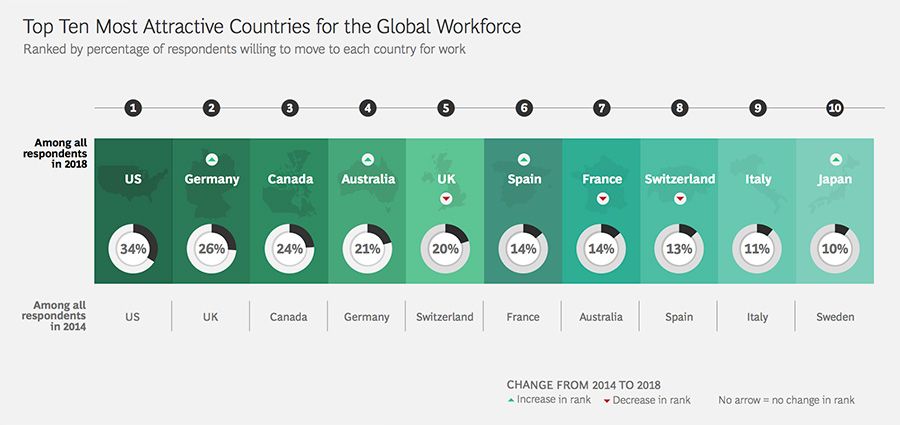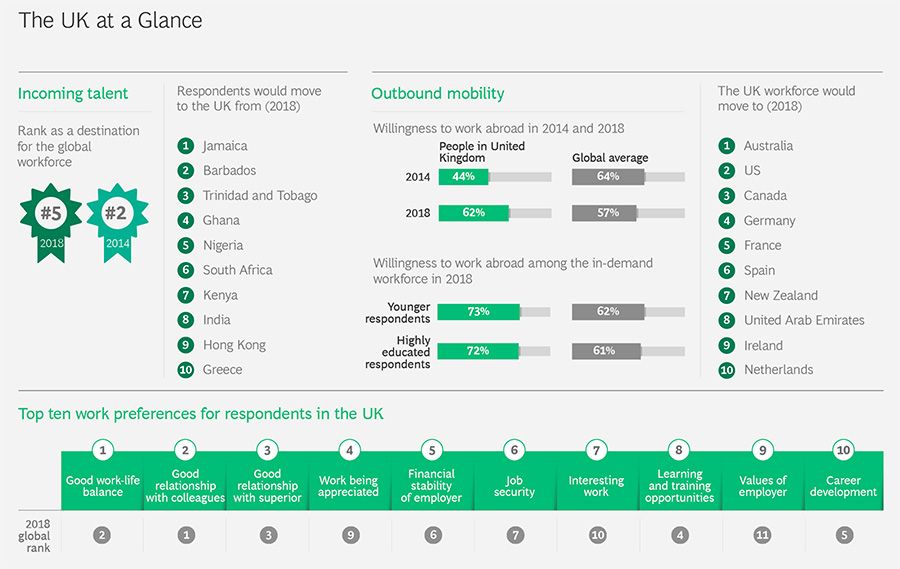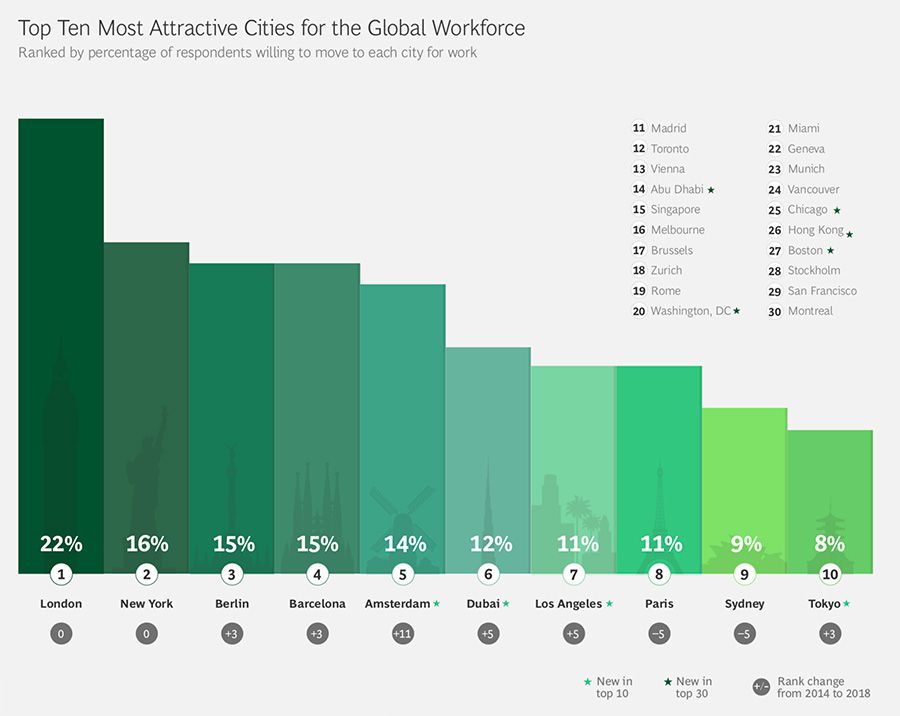Across the world, increasing hostility toward migrants and tightening visa restrictions seem to be putting workers off of relocating for their dream job overseas. According to a new survey, while Europe is doing the best at weathering this storm, Britain’s popularity has plummeted over the past four years, with the exception of its metropolitan capital, London, which still tops the list of favoured destinations.
The past few years have seen a stark rise in popularity for anti-migrant policies, with hard-right populists gaining electoral momentum across the world. A key example of this, and possibly the earliest populist electoral shock in the trend, saw a shock referendum result start the process of removing the UK from the European Union. The continuing uncertainty regarding the extended game of deal or no deal which has emerged since has left many people and businesses wondering if they have a future on the island nation, particularly as leading figures in Parliament such as Conservative MP Jacob Rees-Mogg are presently arguing that the Prime Minister should allow no EU citizens the right to remain in the country post-Brexit.
With this in mind, it is arguably easy to see why the UK as a whole has seen a slump in popularity as a potential destination for migrant workers. Four years ago, the UK was the second-most-popular destination for people willing to move abroad for work, and the top country in Europe. Since then, however, it has fallen to fifth place among the most attractive global work destinations, with 20% of respondents finding it attractive, while Germany has supplanted it as the most appealing spot in Europe at 26%, according to a survey by The Boston Consulting Group and recruitment firm The Network. While this might be exactly what some of the more hard-line champions of Brexit wanted, it presents the country with a major issue, as a growing talent shortage threatens to derail the economy.

Since the 2016 poll on EU membership, as many as 10% of EU nationals with post-graduate degrees, who earn above £50,000 a year are reportedly considering a return to mainland Europe, creating the potential for a large talent shortage for employers, and placing a strain on public services such as the NHS. At the same time, more UK residents say they would be willing to move abroad for work, most notably younger people and other highly sought-after groups, our survey shows.
With an ageing population seeing growing numbers of people reaching retirement age, while fewer young people are able to enter the workforce to replace them, this brain-drain could mean companies across all industrial lines struggle to fill value-adding positions, stunting potential productivity and growth. In the vulnerable position that the UK may find itself in having severed or complicated ties with key trade partners on the continent, this could have dire consequences for the national economy.

According to BCG’s survey, in which 8,400 of the participants were from Britain, more than six in ten UK respondents were open to working abroad. At 62%, UK workers are 12% more likely to seek work across borders than they were just four years ago. The change represents the biggest percentage increase, by country, in people willing to move abroad for work in the world, and also sees the UK surpass the global average for willingness to relocate for work, which is 57%. In 2014, only 44% of UK respondents were willing to take such actions, perhaps signaling a growing intent of the UK’s workforce to sell its labour on the continent without a visa while it still has that right.
To that end, half of the top destinations for those weighing up their own personal Brexit are located in the EU. Germany, France, Spain, Ireland and the Netherlands are all favoured by UK respondents, though Australia, the US and Canada top the list outright – perhaps thanks to a perceived closer cultural fit due to their colonial past, as well as their economic security and majority English speaking populations.
London calling
Interestingly, London seems to have been insulated from the UK’s overall fall in popularity. Asked to name a city they would like to head to for work, 22% of respondents plumped for the UK’s capital, ahead of New York (16%) and Berlin (15%).

London was the only British city to make the top 30, while the US hosted seven cities in the ranking, and Europe (excluding the UK) held a further 12. London’s popularity is perhaps symptomatic of the wide two-thirds margin by which it voted to remain in the EU, while its multi-cultural metropolitan reputation, and close trade ties with the rest of Europe and the world are expected to endure the rest of the UK’s divorce from Europe. These factors mean it seems to have retained its attractiveness in a way most other UK destinations cannot at present.
Commenting on the survey results, Nick South, a BCG Partner & Managing Director based in London, said, “According to our survey, people in the UK stay in positions where they are doing meaningful work, where they feel appreciated, and when they can work in a positive environment that provides both a professional challenge and personal support from colleagues and line managers. The reasons why UK residents leave a job are also familiar, including problems with how they are led and managed, negative work environments, and a lack of opportunities to develop and advance. UK companies are facing an increasingly challenging environment in which to attract and keep strong, talented people. They need to focus on understanding job preferences and getting them right.”
Social Media Development addict, Ashley Reyes is specialised on Emerging Techs & Crowdfunding Market. Ashley holds a Bachelor in Marketing and have 5+ years of experience in leader company as Marketing Intelligence Analyst . She is now Chief Community Officer at Athis News.


































